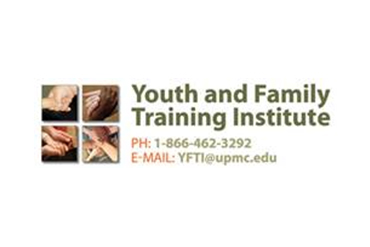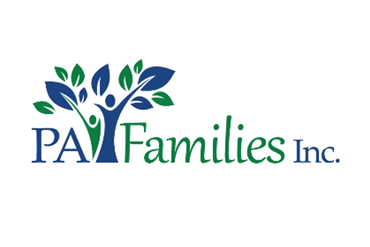LAKESIDE GLOBAL TRAUMA WORKSHOPS
Trauma-Informed Workshops Provided by Lakeside Global
Through funding from the PA Care Partnership or The Offices of Children, Youth, and Families (OCYF)
To register as an individual for a scheduled Trauma Workshop funded through OCYF, please use this link:
Register for Scheduled Trauma Workshops through OCYF
Register for Trauma Workshops sponsored by the PA Care Partnership
Lakeside Global Inc. offers several 2-hour workshops that inform participants on some of the basic physical, mental, and social outcomes of trauma. These workshops are topical and contextual to the issues we encounter with children and adults impacted by trauma with the necessary information and basic skills required to be trauma-sensitive.
A maximum of 50 participants per workshop. Exceptions to the maximum of 50 participants per workshop can be granted on a case-by-case basis if requested.
Continuing Education Units: CEUs for the 2-hour workshops are provided by the PA Board of Social Workers, Marriage and Family Therapists through Lakeside Global Institute. More information on the CEU process is available once it is determined if the PA Care Partnership can assist in funding the training.
Training is funded by the PA Care Partnership and is approved at the discretion of the PA Care Partnership and must be in accordance with the goals and objectives of the System of Care Expansion and Sustainability Cooperative Agreement.
To be eligible to apply for training to be provided in your community, the PA Care Partnership is seeking agencies, counties, and providers to host the training and advertise the training locally to county agencies, providers, youth, and families in your community. The training participants should work with or be involved with youth and young adults ages 0-21 and have a behavioral health diagnosis and/or be involved with the child welfare system in PA.
Trauma Workshops Through Lakeside Global Institute
Trauma 101: An Overview of Trauma-Informed Care (2-hour workshop)
2-HOUR WORKSHOP.
Research shows that 67% of the population has experienced at least one Adverse Childhood Experience. These trauma-based adversities are predictive of a multitude of toxic physical, mental and social outcomes throughout a person’s lifetime.
As a society and as individuals, we need to be better informed and prepared to prevent and address the traumatic impact of childhood adversities. In this multi-media, interactive workshop, professionals work together to build a powerful image that helps them appreciate the complex nature of trauma and its aftermath.
Trauma 102: Basic Skills of Trauma-Informed Care (2-hour workshop)
2-HOUR WORKSHOP.
Building on information provided in Trauma 101, professionals expand their understanding of trauma and are provided specific skills that enhance abilities to interact in emotionally and relationally healthy ways with people impacted by trauma.
As professionals become trauma-aware, they have a responsibility to prevent, avoid and respond to trauma. In this hands-on, interactive workshop professionals are provided opportunities to implement and practice the skills presented.
Trauma 103: Recognizing Vicarious & Secondary Trauma for Caregivers
2-HOUR WORKSHOP.
The emotional and physical cost of being an engaged and empathetic caregiver can be an occupational hazard. Considering the potential impact of vicarious and secondary trauma, compassion fatigue, and burn-out, caregivers are provided with critical steps in identifying signs and symptoms of each.
Additionally, practical skills and a commitment to self-care are an integral part of this interactive workshop.
Trauma 104: Grief and Trauma
3-HOUR WORKSHOP.
Lakeside’s Grief and Trauma workshop offers participants the opportunity to explore the complexities of grief, its many stages, information about how the brain processes grief and loss and healthy and less healthy messages to transmit to a grieving person. Information on how children and teens grieve differently than adults is also included.
Participants learn how grief and trauma intersect. There are opportunities to share thoughts, feelings, sensations and memories associated with grieving. Several video clips are shown that enhance and enrich our understanding of the needs of the grieving person and ways to effectively meet those needs.
Participants learn the basics of being an effective Grief Processor when supporting someone mourning a significant loss.
Trauma 105: An Introduction to Trauma for Professionals
2-HOUR WORKSHOP.
Parents and Caregivers can play an important role in helping children recover from traumatic events. This workshop is designed to provided introductory information about the impact of trauma and the power of relationships to help children heal.
The more parents and caregivers understand how trauma effects children, the more they will understand the reasons for kids’ behaviors and emotions, and the more they will be able to help them cope.
Trauma 106: An Introduction to Trauma for Youth
2-HOUR WORKSHOP.
Creating safe and supportive environments for youth involves educating youth on why people behave the way they do.
Incorporating basic information about the impact of trauma and identifying some basics of brain structure provide the foundation for youth to better understand themselves and those around them.
A highly engaging and interactive strengths-based activity assists youth in identifying their present self and encourages them to set healthy emotional and relational goals for their future self.
Trauma 107: Trauma-Informed Cultural Sensitivity (Four (4) Hour Training)
Enhancing cultural competence and encouraging cultural humility is essential to increasing access and improving the standard of care for traumatized children, families, and communities. Cultural awareness, responsiveness, and understanding need to be infused at every level to be effective in addressing the needs of those who have experienced trauma. With both presentation and group interaction, participants will identify forces that contribute to behaviors that build or decrease emotional health in individuals and systems.
In this four-hour workshop, participants will:
- Explore key principles of cultural sensitivity and the power of biases, legacies, and transgenerational loyalties.
- Recognize ways that trauma can impact cultural beliefs and practices for individuals and groups. Identify and provide understanding around specific invisible cultural forces that contribute to positive and negative behaviors that build or decrease
- emotional health in individuals and systems.
- Consider ways they might want to modify or change some of their culturally based beliefs, especially when trauma is a factor in shaping and perpetuating unhealthy beliefs.
- Promote personal and professional growth around cultural sensitivity by providing opportunities for participants to gain new awareness, concepts, and skills.
Trauma 108: The Trauma of Racism
4-HOUR WORKSHOP.
Prerequisite training: Trauma 107: Trauma-Informed Cultural Sensitivity
This workshop provides information the subject of racism with a focus on defining basic aspects and components of racism, historic racism and researcher bias:
- Implicit Bias and the Neuroscience of Bias
- White Privilege, Colorism and Microaggressions
- The Intersection of Trauma and Racism
- Reasons to have Hope including Theory of Change, Social Movement, and Tipping Point
- A.R.C. of Racial Reconciliation
- Constructive, Critical and Courageous Conversations
- The Myth of Race
Additionally, time will be spent integrating trauma principles to highlight the profound impact of racism while offering ideas with regard to the responsibilities of white and BIPOC to actively promote anti-racism and socially equality. There are opportunities for individual reflection and constructive conversations among participants to allow consideration of action steps to take as individuals, communities and a society to challenge and change attitudes, beliefs and behaviors around race.
Trauma 109: Trauma in a Pandemic (release date 11/15/2021)
3-HOUR WORKSHOP.
We cannot escape the fact that COVID-19 is real, has impacted millions of individuals and systems (schools, health care, political, organizations and businesses). The most distressing, lingering symptoms are neurological. Managing our thoughts, feelings and sensations has been challenging.
In times of fear, stress, uncertainty, and loss, we can benefit from exploring what has taken place, is going on, and may continue in the future. We can benefit from collectively knowing we have been experiencing something together and feeling less alone in facing these challenges. We can find ways to support and inspire each other, gain clearer perspectives, and share hope for what we can do.
This workshop explores our shared experiences of the COVID-19 pandemic through trauma lenses to bring meaning from the experiences associated with living through a pandemic. Participants appreciate the impact of a pandemic, both positive and negative, and are encouraged to expand their perspective and skills specifically related to the intersection of trauma in a pandemic.
Trauma 110: The Impact of Social Media
3-HOUR WORKSHOP.
Lakeside’s workshop on the Impact of Social Media offers participants the opportunity to explore how social media has evolved over time, especially in the last twenty years. Participants are invited to consider both the positive and negative sides of social media, the potential for social media to be addictive, and the role parents and caregivers play in ensuring that children and teens are not emotionally or relationally harmed as a result of their social media activities.
Video clips featuring two prominent voices who have written best-selling books on the impact of social media promote enhanced appreciation for the power of social media to be harmful if not carefully monitored and controlled.
Participants have opportunities to engage in conversations with each other to inspire greater clarity in their roles as parents and caregivers as well as appreciation for how they need to be self-aware and self-protective when it comes to their own use of social media.
PA CRISIS TEXT LINE







